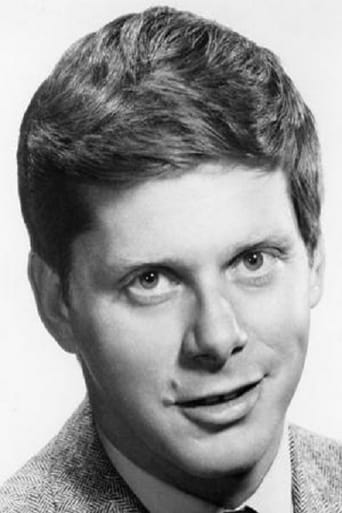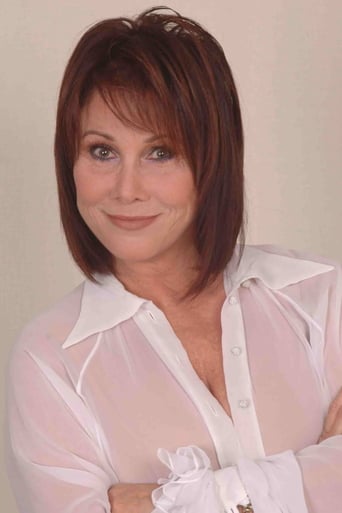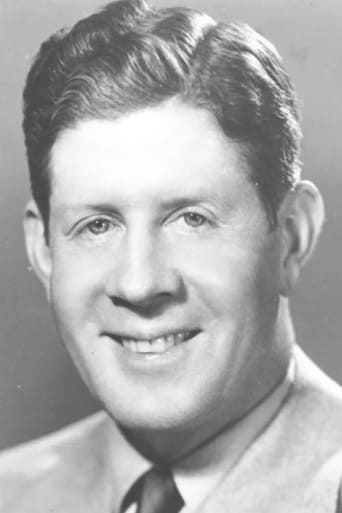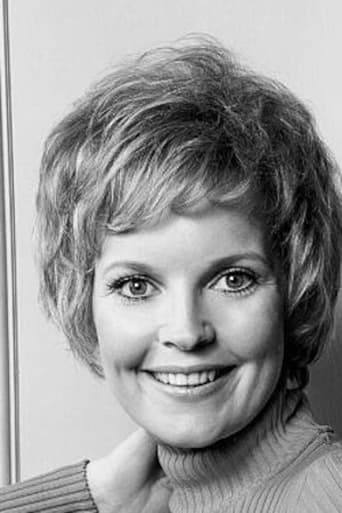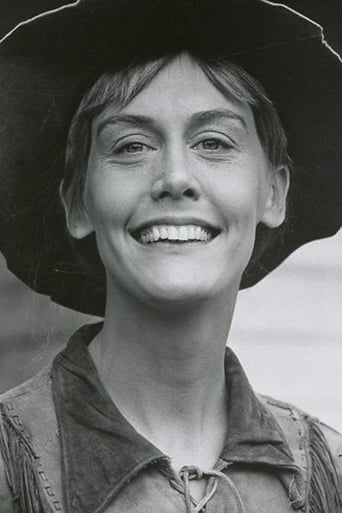mccready-906-458193
Robert Morse is incredible in this, absolutely electric, you can really see why he won the Tony Award for this (he performed the same role in a live run on Broadway). It's not the best musical ever but this is one of those times that the best version if probably the one they caught on film, I wish I could have seen Morse perform this live too!
A_Different_Drummer
Cynics may say that the film merely copied the play, which was ALREADY a smash. Bad argument. Whether this film merely copies a superb piece of entertainment which already existed, or takes an existing work to the next level is irrelevant. It is superb and it holds up extremely well. Morse is nothing less than brilliant as both the lead character and the "master of ceremonies" who is always talking directly to the audience. I have seen this at least half a dozen times and every time I have to ask myself, why was Morse not known for other roles aside from this? He had talent. It is one of those odd Hollywood quirks that sometimes an actor will become known for just one role. In this case one is more than enough. Michelle Lee is not only glamorous but intelligent, a mix that was rare in the era. Those same cynics will tell you that mores have changed and the workplace is not like this anymore. They are wrong. The same games exist, the rules have changed slightly. Guaranteed entertainment.
dimplet
Don't let the 1967 release date fool you. This is really a 60s musical spoof of the 50s. The book and the original draft of the Broadway version were written in the 1950s, and the Broadway musical came out in 1961. One of the clues of its 50s roots is in the treasure hunt TV show's concern over proving it wasn't rigged -- a reference to the quiz show scandals of the 1950s. I saw the original Broadway show, and had listened to the Broadway cast LP album, when I was a kid. I enjoyed it, but it's so long ago, I can't really compare the two reliably. I do think the Broadway version had more power, and the album seemed to have more music. I see that the movie dropped some numbers of Rosemary's, and gave her the first version of "I Believe in You." This was a big mistake. Finch singing "I Believe in You" to the mirror was the highlight of the show. It was a love song to himself, a sign of his total narcissism. The movie's approach makes it seem like he is thinking of Rosemary, and that Rosemary believes in him. Plus, there is too much dancing around in the men's room while he sings -- he should be looking at himself in the mirror, singing it to himself, as though he is in love with himself. So the movie took some of the edge off; it could have been better. I think it is easier to tell a story like this, absurd and surreal, on stage more easily than in a movie, where the viewer, especially a modern one, expects a bit more realism. You really have to suspend disbelief totally and go along for the ride to enjoy this movie. If you do, you can enjoy it, and really laugh, even thinking about it when it is over. We know where the story is going, but there are enough twists and turns to make it surprising and amusing. It is interesting looking back on this movie so many decades later. There is real wit here, not just gimmicky slapstick, if you pay attention:Finch reading The Book as he begins his day as a window washer: "If you have education, intelligence and ability, so much the better. But remember that thousands have reached the top without any of these qualities."It is humor that stands the test of time, especially in light of what we have seen of Wall Street in recent years -- you get the feeling there are a lot of Finches who have risen to the top without qualifications running the show in many businesses. It is sad, but this movie is an opportunity to laugh at them.The American 50s and 60s were actually pretty hip, and capable of a satirical look at itself. A year after this movie came out, Mel Brooks released The Producers. I see there is a recent revival of the Broadway version of How to Succeed. Robert Morse really defined the part, though he reminds me of a young Jim Carrey. But I don't think he's such a lock, as Zero Mostel was with The Producers. So I think this could be one of the better revivals, if done right. When you watch How to Succeed, at first it seems like a look back at a simpler time of clearly defined male and female roles in the workplace, etc. But really what you are seeing is art making fun of those roles, and the beginning of more modern values, for the 60s were the beginning of our modern world. And in some ways, the 60s were more modern and hip than America is today, for a large portion of America is becoming more conservative, and less willing to laugh at itself. So when you watch How to Succeed, think about some young yuppie climbing the corporate ladder today, and it will all make sense. Of course, Hedy LaRue didn't need The Book to succeed; she had other assets. I've got to add that I loved the scene of Morse dancing down Park Avenue, with a film truck driving alongside him, secretly filming him. New Yorkers are so cool and nonchalant that nearly everyone just ignores him. Maybe they thought he was doing a Teaberry Shuffle ad.And did you notice that World Wide Wickets is abbreviated WWW? Cool.
cheryllynecox-1
It is brilliant that tonight, June 29, 2010, TCM is paying tribute to an icon of American Popular Music; one whose canon includes the brilliant "How to Succeed in Business Without Really Trying". Straight out of the ring-a-ding sensibility of the mid-sixties, "HTSIBWRT" is a pitch perfect parody that nobody but Frank Loesser could have captured with such wicked aplomb.Carefully directed by David Smith, Loesser's music and Bob Fosse choreography transition well from Broadway to the Big Screen. The costumes and set decor reflect the post-modern lines and plastic palette of 1967 as a last ditch defense against the intrusion of anti-establishment Bohemia and counter culture codification.J. Pierpont Finch, masterfully brought to life by Robert Morse, is shamelessly self-serving without being obnoxious. Morse demonstrates absolute genius in the lead: he sings effortlessly and is a charming hoofer. He gets a major assist from a gorgeous Michelle Lee, as Rosemary, whose clarion voice beautifully conveys some of Leosser's loveliest lyricism.What I find particularly compelling 43 years after HTSIBWRT premiered is the role that Morse is currently playing on the small screen. As the head of "Mad Men"'s Sterling-Cooper, he has immersed himself in a role that comes from another angle of the sixties corporate culture. I wouldn't be surprised if the creative forces behind AMC's "Mad Men" weren't influenced by Frank Loesser's exceptionally clever "How To Succeed in Business Without Really Trying".

